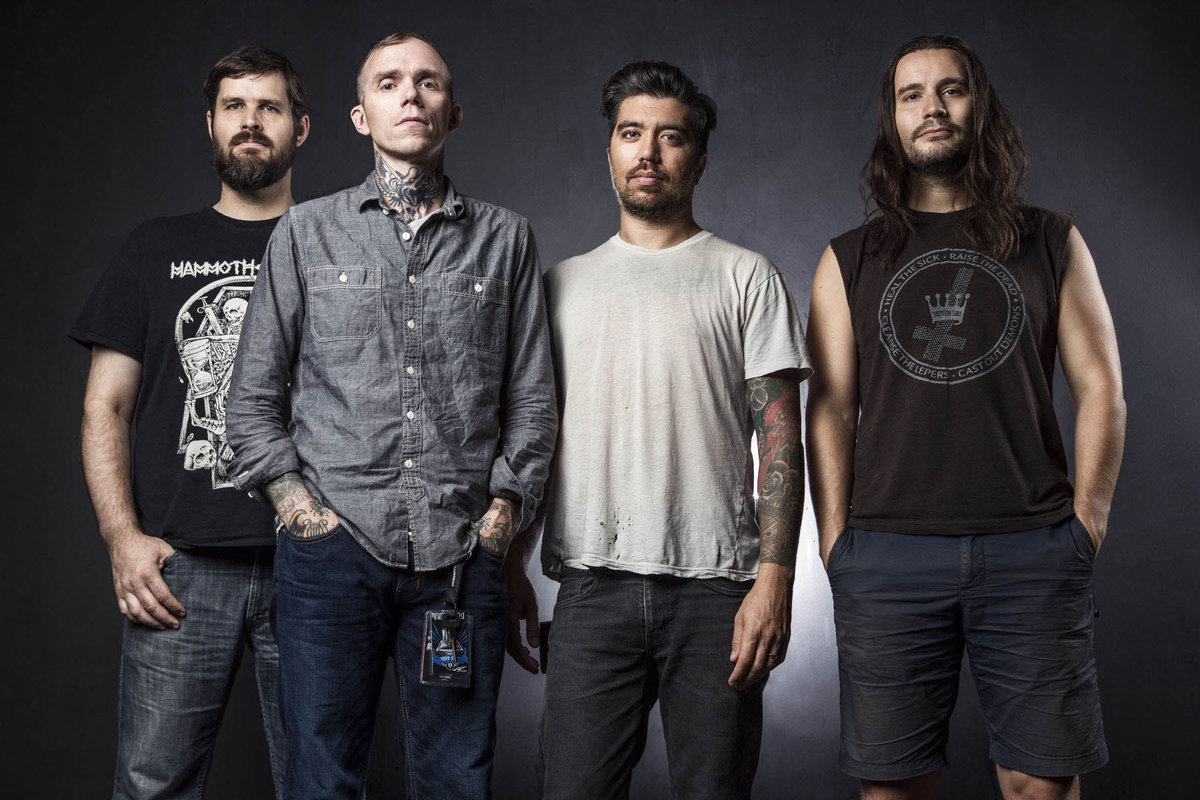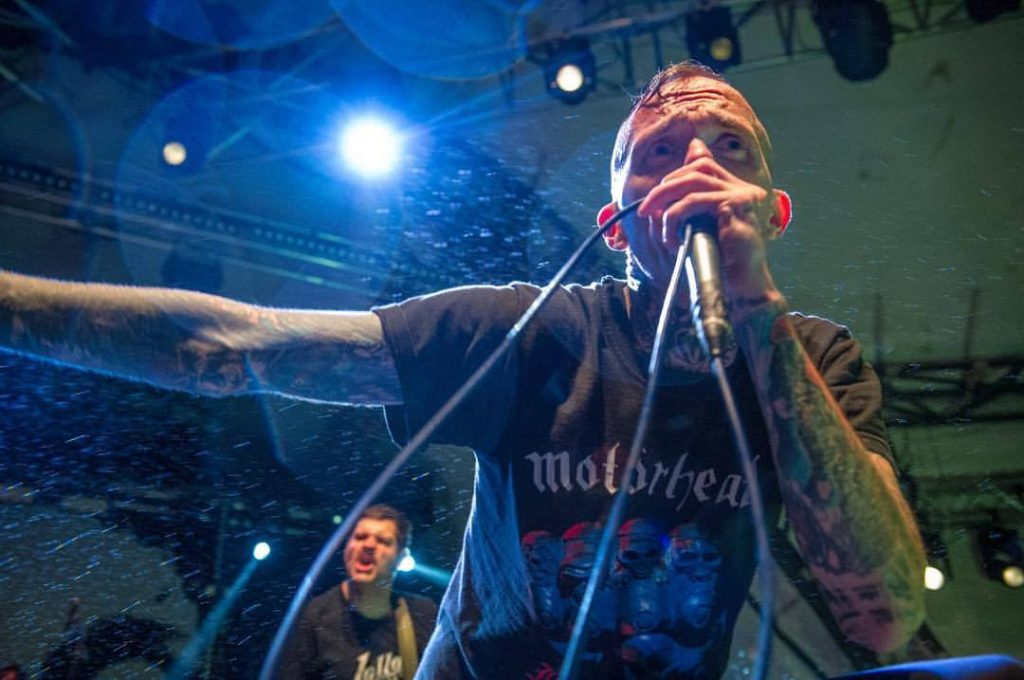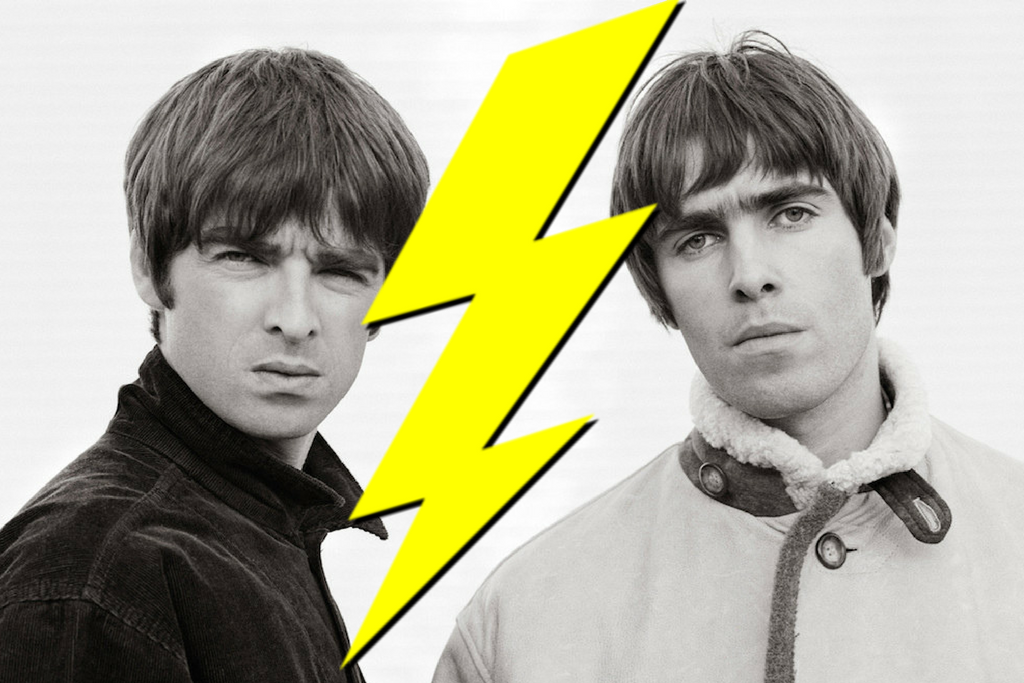“Music Is A Selfish Pursuit”: Converge On Their 25-Year Labour Of Love
We catch up with the heavy music legends.

Theirs is not a household name. Their discography does not come with platinum record sales or Grammy nominations. They’ve never been Pitchfork darlings or Rolling Stone cover stars.
All Converge has is their music — and it speaks far louder than any mainstream accolades ever would. Forming as a high-school band in 1990, Converge have gone on to release several records widely considered to be definitive landmarks in the circles of both metal and hardcore, including 2001’s Jane Doe and 2004’s You Fail Me.
Although perceived to be a cult band — even their online presence is unified by the moniker “convergecult” — the influence Converge holds over heavy music can be equated to what was held by giants like Metallica and Black Sabbath for their respective eras. Few bands attack with quite the same fervour while simultaneously welcoming clear contrasts — a buzzsaw guitar riff and battering-ram drums will often become bedfellows with striking avant-garde detours and darkened ambience; all within minutes of one another.
This has continued on with the release of The Dusk in Us last month, which marks Converge’s eighth studio album and yet another stellar entry into the band’s body of work. Artful and cathartic, Converge have spent over two decades as frontrunners and standard-bearers.
That contrast in musical approach also reflects within the band’s personnel. Take, for instance, Jacob Bannon — the band’s lead vocalist and one of its two founding members, alongside guitarist/producer Kurt Ballou. On-stage and on record, Bannon is a wrecking machine — cacophonic, writhing, belligerent and entirely irrepressible. Speaking to Music Junkee from the offices of his label Deathwish Inc., however, none of that same striking presence is there.
Bannon is timid, quiet and pensive. He’s private almost to the point where he won’t give anything away, and polite to the point of wondering if perhaps a wrong number was dialled. Across the entire process of the interview, however, he remains an ever-intriguing figure — even when hard to crack by design, you’re compelled to chip away in case any breakthroughs are made.
Bannon spoke about his process as both a recording and a visual artist, his perception of Converge’s evolution and why music is not a competition.
The Dusk in Us comes five years on from All We Love We Leave Behind. That’s the longest gap that Converge have ever taken between records — is it simply a matter of life getting in the way?
As a band, we’re all fairly creative people on our own. We’re always working on ideas independently. It just takes a bit of time to get us all in the same room, and make the time to simply make an album. It’s always a challenging thing. That was no different with this record. For lack of a better term, all four of us are professionals — we all have jobs and responsibilities, both inside and outside of music.
Also, as a band, we’ve incredibly busy in the last five years. We’ve toured a lot, and we’ve worked on releases — albeit not of new material, but time-consuming efforts nonetheless. We put out a three-disc Blu-Ray set [2015’s Thousands of Miles Between Us], we remastered and remixed You Fail Me and we put out two 7-inches.
I released two albums under the name Wear Your Wounds, and I also published a book of my art [2013’s Dunedevil]. Mutoid Man [featuring Converge drummer Ben Koller] released two records, Kurt engineered a wide variety of albums and I put out a lot of music through Deathwish. Five years might seem like a long time, but we’ve managed to fill basically all of it.
How do you navigate the creative process with so many variables and other projects taking your focus away? Is it a matter of blocking out periods of time to focus solely on Converge, or do you take each spare moment as it comes?
It’s a little bit of both. You’re always writing. You’re always working on things. That never changes when you’re a musician. I would describe every member of Converge as a life artist of sorts — we’re all people that have dedicated our lives to making art and making music.
Sometimes, the motivation isn’t there — and that’s something you should definitely listen to. We write personal songs — we write about our lives, and if they’re going well then you shouldn’t try and force writing about when it’s not. That’s why you always keep those other avenues open — it frees you up to do other things when you’re not necessarily in the right headspace to write songs. You have to allow for the process to unfurl naturally, I think that’s a commonality across everyone with artistic endeavours.

Photo via Converge Facebook.
What, then, was your mindset in the writing of The Dusk in Us? Is it possible to compare and contrast it to where you were, personally and mentally, in the writing of All We Love We Leave Behind?
I’m not sure… I’m not really introspective in that way. I leave that up to the songs themselves — that’s what they’re for, y’know? I don’t really break down specifics in terms of my life or the other guys in the band. It’s all sort of wrapped up in our songs. It’s woven into the fabric of what they are. That’s the document, and that’s the most important thing.
The way this record was made is not all that different to the way the last record was made. It’s all a matter of giving an artistic purge to moments and circumstances that need to be elaborated on. The Dusk in Us is, for better and for worse, the last five years — the same way that All We Love We Leave Behind was the three years before it.
There’s a line that opens the song ‘Trigger’ on the record that strikes the ear on first listen: “The sting of pain ripens with age.” Converge has been a band for 27 years at this stage, and it began when both you and Kurt were still teenagers in high school. Through that entire time, Converge has always made incredibly intense, aggressive and emotional music. Do you feel as though you have been able to better channel the sting of pain, as it were, as Converge has progressed through the years and as you’ve gotten older?
I guess I’ve never really analysed what we do like that. I really feel as though things like that are out of my hands — it’s really up to our listeners as far as that’s concerned. If what we do connects with them, then maybe there’s something to that. That’s not even connected to the intention of our music, though.
The intention has always been that purge I was talking about — that release. As selfish as it may sound, it’s not for anyone else, so to speak. I don’t know… I’ve never been the type for self-analysis. We just kind of do what we do. I will say, though, that I would imagine it’s evolved. I’m sure that it’s evolved, sharpened and progressed in its own way.
It’s not something that I think about all that often.
Is it a matter of not being able to extract yourself and objectively view the band from an outside standpoint? A lot is made on the influence and impact that Converge has had on heavy music – do you not see any of what you’re doing in other bands that are coming up through the ranks?
The short answer is no. [laughs] Honestly, for me, music is a selfish pursuit. It’s all about leaving the emotion on the page — getting what needs to be expelled from me and the other guys out there. Once it’s out there, that’s it. We don’t think about our band in any other terms — where we fit, how we might be analysed. You know why? I think it’s because when you start doing that, it’s almost as if you’re keeping score.
We’re not a competitive band. We’re not competitive people. There’s countless musicians that are probably more talented more prolific than we are, that can craft their songs better, that probably impact on people’s lives in a more positive way. We just try to be the best version of what we can be for ourselves. If we were doing this without an audience, we’d still be doing this. We’ve followed this path because it’s a labour of love. It’s part of who we are. We truly cherish this.
One would assume that Converge are a band that are perhaps more in-touch with metal and hardcore in a contemporary sense, given your work outside of the band — Kurt as a producer and an engineer, yourself at the helm of Deathwish Inc. Are there any bands or artists at the moment, either present or emerging, that you’ve found to be pushing the envelope and really standing out to your ears?
I don’t think that I really look at bands that way — as I mentioned, everyone is really on their own path; and it’s hard to single out a band and say they’re doing what no-one has done before them. I’ve never been the kind of person who scouts the territory. It just doesn’t interest me. Of course, if I find myself making a connection with a band or an artist, then that’s cool – whether that’s in a live setting, or just listening to a record.
“Music is a selfish pursuit. It’s all about leaving the emotion on the page – getting what needs to be expelled from me and the other guys out there.”
Here’s the thing, though: There is so much music out there. Even stuff that I oversee — Deathwish works as a distributor as well as a label, so stuff comes through from labels that are both bigger and smaller than Deathwish. I hear and I see so much music, all of the time. The only thing that I can really say is that the heavy music community is one that’s really, really strong. It’s so vibrant – there’s always something interesting happening.
I worry that if I single out bands, it creates this world of unintended emphasis. Let’s face it: no band needs my approval. [laughs] It’s not about that. I don’t really feel as though it’s my place to be putting it out there. I mean, if people really want to see the kind of stuff that’s connecting with us, there’s the stuff that Kurt’s recording and the stuff that I’m putting out or distributing. It’s not a stamp of approval as such — it’s about wanting to help an artist realise their vision. That’s a really positive thing.

Converge on stage in Switzerland, 2013. Photo via Converge Facebook.
Outside of Converge and Deathwish, you’re also a visual artist. The aesthetic of Converge records, where you’re responsible for the album artwork, has always been intextricably linked to the music. It’s not just about the album or the songs – it’s a complete package. When it comes to that side of things, do you create the art with the album itself in mind, or is it correllating between works you’ve already created and the thematic structure of the record?
Unfortunately, I don’t have that kind of free time to be able to do the latter. I wish that I did — I think it would be really great. Alas, economics dictate otherwise. I’m a working-class artist that has to take on jobs and projects to make ends meet and provide for my family. I don’t really have the time to be more free with that aspect of art.
At this point of my life, I’m more or less a commercial artist — just because that’s what reality dictates. I wish I could just make stuff for the sake of making stuff — I’ve certainly tried to do that in the past, but there’s just not enough time in the day. There’s always projects, gears turning, ideas coming together. The art that I make now is just always specifically for an album cover or for a band or something like that.
Was it clear how The Dusk In Us would look? When you’re hearing a record back, do you see how the record is going to look – if that makes sense?
It’s a really fluid thing. I actually made the whole package for The Dusk in Us twice — I designed it, I did art for every song, and I ended up scrapping all of it. I just didn’t like it. It didn’t really fit the sonic character of the record, I felt it was too detached after spending two weeks on it. That’s part of the artistic process, though — sometimes, it doesn’t all come together right away. Sometimes, it takes a little time. A little experimentation. You just have to let the ideas and the concept marinate to have something come together.
Once you have a breakthrough moment, it comes together rather quickly. A record cover could take 12 hours to come together. It could take 12 weeks. My process — including scrapping and starting over — probably took about three months. It all depends on when you start the clock, and when the epiphany hits. It’s really six or half a dozen on either side.
—
David James Young is a freelance writer, musician, and podcaster. He is on Twitter.
